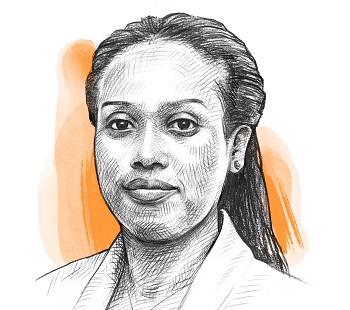IPC Guinea – Project to Support Infection Prevention and Control in Health Facilities in Guinea
Objective
-
€7mBUDGET
-
01/01/2021PROJECT START
-
51 monthsDURATION
Infection prevention and control, a national priority in Guinea
The health system in Guinea does not always comply with hygiene norms due to economic, governance or organisation issues. Guinean authorities consider infection prevention and control as a national priority. In this framework, the Project to Support Infection Prevention and Control in Health Facilities in Guinea (IPC Guinea) is an opportunity to implement and build on the results Twin2H an hospital hygiene project previously implemented by Expertise France.
Find out more about Twin2H
A project to strenghten hygiene practices
The IPC project is designed to strenghten good hygiene practices by facilitating their implementation and supporting multi-polar governance in favor of IPC. Therefore it should help to reduce avoidable morbidity and mortality linked to the transmission of infections in day-to-day care, as well as in epidemic crises.
The project is based on three complementary areas of operation, at different levels:
- At the central level: strengthening the governance applied to the central functions of the Ministry of Health, in particular the Hygiene and Safety Division of the National Department of Hospitals and Health Hygiene (DNEHHS).
- At the regional level: measurably and sustainably improving the hygiene of the premises and medical acts in the health facilities of three large regions (Nzérékoré, Kankan and Conakry), regulated by more effective and better equipped decentralised governance.
- At the community level: increasing the knowledge and mobilisation of users by supporting community stakeholders and professionalising the institutional mass communication of the Ministry of Health on issues related to infection prevention and control.
Towards a decrease in the number of infections acquired or transmitted in medical environment
The IPC Guinea project should make it possible to achieve a measurable improvement in the hygiene of healthcare procedures, with a decrease in the number of infections acquired or transmitted in hospitals, maternity wards and health centers, especially through:
- objective progress in the practical organization of hygiene/IPC within healthcare establishments, particularly district hospitals in the three provinces of operation;
- improved management methods for regional and prefectoral health departments;
- increased accountability of health services and enhanced user confidence through widespread dissemination of hospitals' hygiene and IPC performance;
- measurable enhancement of IPC skills and knowledge among healthcare workers and users alike, as well as the introduction of diploma-level university training in Guinea;
- informed and increased participation of users in hygiene issues, thanks to improved awareness and changes in certain ideas, practices, attitudes and behaviours in terms of hygiene/IPC.


